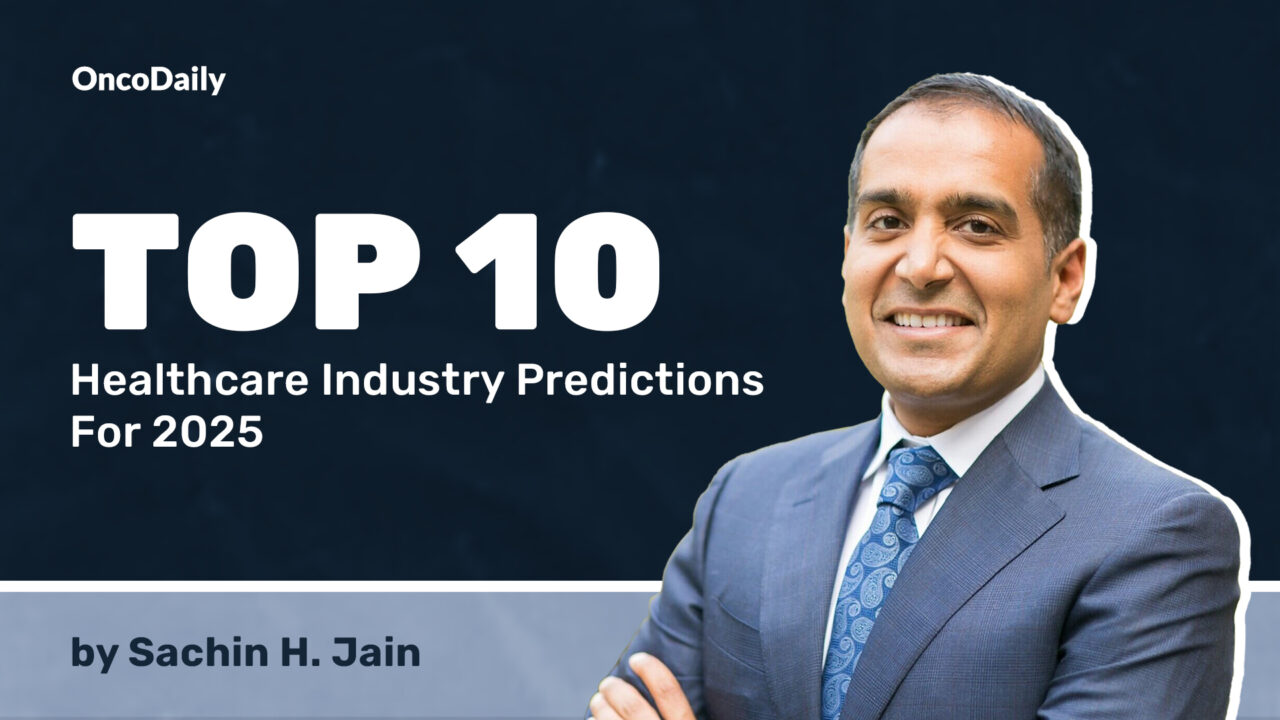
Top 10 list of 2025 healthcare industry predictions by Sachin H. Jain
Sachin H. Jain, President and CEO of SCAN Group, recently shared his top 10 list of 2025 healthcare industry predictions.
1) Wellness Will Be Front and Center
Wellness will dominate discussions as skepticism toward processed foods, alcohol, and traditional medicine grows. Alternative health ideas will gain traction, challenging conventional healthcare, which the public increasingly views as corrupt—except in times of personal medical need.
2) Misinformation Will Get (Much) Worse
Trust in the medical profession has declined post-pandemic, with many questioning physicians’ expertise and turning to unverified online claims. Rebuilding confidence will require a unified, grassroots effort across healthcare sectors to establish and follow trust-building principles. However, political distractions make such a comprehensive initiative unlikely in 2025, though optimism remains for future years.
3) Medicare Advantage Will Make A Roaring Comeback
The Medicare Advantage program has faced challenges in recent years, including reduced revenues, stricter STAR rating requirements, and increased regulatory scrutiny. However, with the Trump administration and Mehmet Oz likely heading CMS, there’s potential for relaxed regulations, making Medicare Advantage a more attractive option compared to traditional Medicare.
While a full “Medicare Advantage for All” proposal seems unlikely, reforms could expand its appeal, especially given that traditional Medicare lacks coverage for dental, vision, and audiology services common in Medicare Advantage plans.
4) Obscure Government Deputies Will Matter More Than Ever
With Robert F. Kennedy Jr. as Secretary of Health and Human Services and Mehmet Oz as CMS Administrator, President-elect Trump prioritizes celebrity over policy expertise for key healthcare roles. While Kennedy and Oz will influence healthcare policy with their strong perspectives, they will rely on experienced deputies to manage complex agencies. These deputies, like Jim O’Neill at HHS, will wield significant power in shaping U.S. healthcare, especially in the less glamorous but impactful details.
5) The Health Equity Field (As We Know It) Will End
After George Floyd’s death, healthcare organizations introduced health equity initiatives, with many appointing chief equity officers. Health equity was central to the Biden administration’s healthcare agenda. However, with the creation of the Department of Government Efficiency, there are signs that health equity efforts could diminish or shift focus, especially as new political leadership targets DEI-related spending. Ramaswamy’s comments suggest a push for more efficient government spending, signaling a potential retreat or transformation in health equity priorities.
6) There Will Be More Turnover at The Top
In 2024, several major healthcare companies saw leadership changes, including at Humana and CVS. More turnover is expected in 2025 as boards look for new leaders to tackle ongoing industry challenges. Long-tenured CEOs may receive golden parachutes as a result. This trend will affect managed care companies, health systems, startups, and possibly even government positions. Healthcare search consultants are poised for a strong year as a result of these shifts.
7) Big Transactions Will Return
After several failed mergers, including the Humana-Aetna and Cigna-Anthem deals, large healthcare transactions slowed due to regulatory concerns. However, the incoming administration may be more favorable toward such mergers, leading to a resurgence of significant deals in 2025. This could include mergers, breakups, and privatizations, with major players like Kaiser Permanente’s Risant expected to acquire more health systems. Healthcare investment bankers will likely see a busy year ahead.
8) The AI Revolution Will Accelerate
AI is revolutionizing healthcare by streamlining administrative tasks, assisting with diagnostics, and offering decision support to physicians. Major healthcare vendors like EPIC and Cerner are integrating AI, while biopharma companies like Vertex are exploring AI across their operations. As AI costs decrease, its use is expanding, improving patient care and reducing administrative burdens. Even prestigious institutions like the New England Journal of Medicine are embracing AI, signaling the rapid growth of this technology in healthcare.
9) Regulators Will Scrutinize Private Equity’s Role in Healthcare (Even More)
The collapse of Steward, a healthcare company owned by Cerberus Capital, has raised concerns about private equity’s influence in healthcare. As costs rise and service quality declines, the failure of a local hospital has sparked debate. States like Oregon and California have set up healthcare transaction review boards to regulate private equity’s role, and these boards are expected to become more proactive, with growing public support for stricter oversight.
10) Digital Health Will Continues to Spin
Many digital health companies that were once highly valued, like Teladoc and Livongo, have struggled to meet expectations. The core issue has been their failure to integrate effectively with the traditional healthcare system. The companies that succeed in 2025 will be those that can not only compete with traditional healthcare but also seamlessly bridge the gap when necessary, a challenging task. Expect some digital health companies to announce partnerships that successfully achieve this integration in 2025.
For more information, visit the Forbes website.
-
Challenging the Status Quo in Colorectal Cancer 2024
December 6-8, 2024
-
ESMO 2024 Congress
September 13-17, 2024
-
ASCO Annual Meeting
May 30 - June 4, 2024
-
Yvonne Award 2024
May 31, 2024
-
OncoThon 2024, Online
Feb. 15, 2024
-
Global Summit on War & Cancer 2023, Online
Dec. 14-16, 2023
